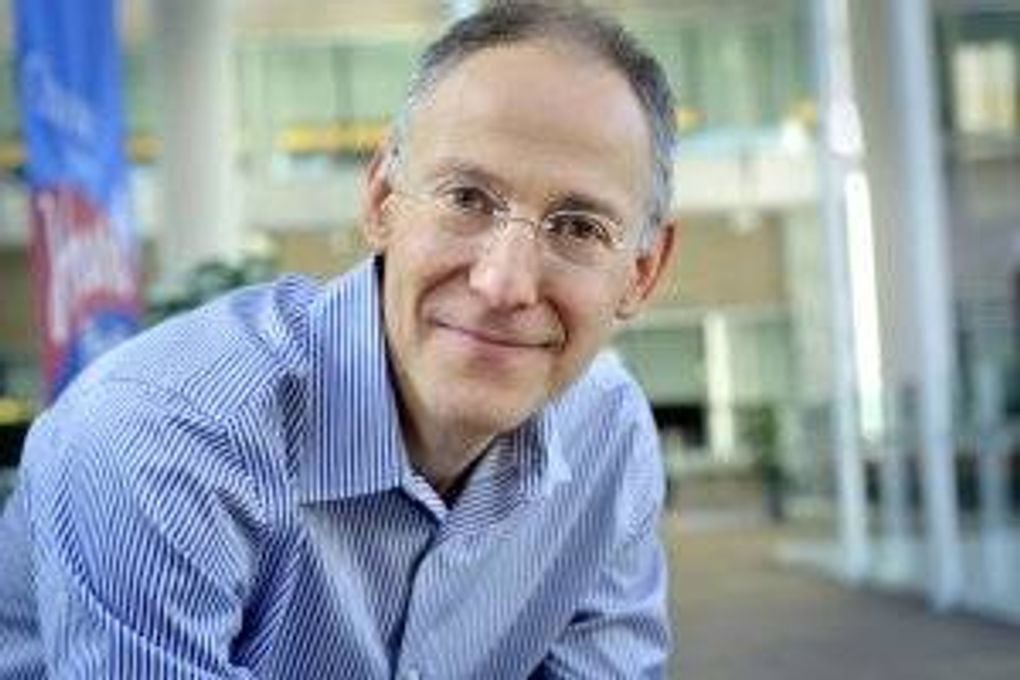It's Quality, Not Quantity, of Life That Matters
Frank talk about aging from Dr. Ezekiel Emanuel, a Longevity Innovator
(Advances in science and public health are increasing longevity and enhancing the quality of life for people around the world. In this series of interviews with the Milken Institute Center for the Future of Aging, 14 visionaries are revealing exciting trends and insights regarding healthy longevity, sharing their vision for a better future. The Longevity Innovators interviews highlight new discoveries in biomedical and psychosocial science, as well as strategies to promote prevention and wellness for older adults. This is the tenth in the series.)

From spearheading the Affordable Care Act to opposing the legalization of euthanasia, Dr. Ezekiel Emanuel continues to make his mark on health care. Emanuel, vice provost of global initiatives and chair of the department of medical ethics and health policy at the University of Pennsylvania, is a globally renowned oncologist and bioethicist, and author and contributor to numerous media outlets. In an interview with the Milken Institute Center for the Future of Aging, Emanuel explains the urgent need to improve quality of life and why we are getting further from an honest conversation about aging.
The Milken Institute Center for the Future of Aging: In your attention-getting piece in The Atlantic, you identified the age of 75 as a personal cut-off point for health interventions. You state: “Once I have lived to 75, my approach to my health care will completely change. I won’t actively end my life. But I won’t try to prolong it, either.” With what’s known about the distinction between chronological and biological age, why 75?

Dr. Ezekiel Emanuel: I think there are five or six different criteria. The first thing almost all of us will say is “I really care about quality of life, not quantity of life.” The question then becomes: when does quality of life begin to deteriorate?
Whether it’s cognitive or physical, 75 is a very important threshold. As we get older, our cognitive abilities decline — there’s a natural slowing down of the brain, a natural decrease in processing speed, a natural decrease in creativity. So, if you are interested in mental acuity, 75 is where you see a dramatic slowdown.
Similarly, you have a lot of physical decline and an increase in physical morbidity the older you become. For example, the inability to climb stairs or the inability to walk a quarter of a mile, these things begin to increase.
And if you look at the rates for Alzheimer’s and other dementias, they are relatively low pre-75, higher at 75 and then dramatically increase after 75. So, by 80, between a third and a half of people have dementia of some kind.
And finally, I would say if you look at the world’s literature on creativity and productivity and generating and thinking new thoughts, it’s very hard to find anyone after 75 who has done anything positive. I can think of four people in all of history where we see good evidence of their creativity, productivity and generation of thought post-75. You have Michelangelo, Benjamin Franklin, Goethe, and Verdi. What ends up happening in life is that you switch from being engaged with life to being much more passive.
Are we too focused on living longer?
Yes, and I think we delude ourselves about the wonderfulness of living long, and I think the advertising industry and others want us to be somewhat deluded.
Right after I published that article in The Atlantic, there was a big advertising campaign by AARP about how the beat goes on forever and so can my life. Then they show these very vigorous people, not very old, hiking in what looks like Montana. Around the same time, The New York Times wrote a big article on people in their 80s doing things like driving motorcycles and snorkeling. Those people exist, those activities exist, but they don’t show you the flip side.
In these ads, you didn’t have the full picture of just how many people are in nursing homes, people who were just sitting around in vegetative states or people who are unable to leave their houses. So, you get a much-distorted view of what it’s like to age.
If you read the literature of what’s happening in Japan, you get a lot of people who are lonely, their spouses died off, their friends have died off, their kids are off doing their kid things and they are left very much alone. That doesn’t seem to be a wonderful life.
So I think we need a much more accurate view of what it is to live a long life into your 80s and 90s.
I would say that for many, maybe even the majority of people, it isn’t so wonderful. Almost anyone you ask will say, ‘Yes, you’re right. I don’t want to just record the number of years, I want to have a high quality of life.’ But, in the end, the average lifespan in the U.S. has gone up another three months. What does that tell you? Well, we’re just counting numbers, we’re not counting quality. The average lifespan is not a quality measure.
Regardless of age, what health characteristics should people consider as they make care and treatment decisions and weigh age-prolonging options?
First, I think the most important thing is for people to consider, well before they get close to the end of life, or well before they even get to 70 or 75, is how they want their life to go. It’s the kind of thing you should consider when you’re 20, 30, 40, 50.
Henry David Thoreau talks about sucking the marrow out of life, and I think that’s what people ought to do — to stop worrying about ‘Am I going to make it to 80 or a 120’ I think when you start thinking that you’ll make it to 100, that may be a recognition that my previous or current life wasn’t that valuable or meaningful, and I sort of squandered it.
Be focused more on living a rich life rather than trying to get to 120 — that might be more valuable in my opinion.
How should public and private payers evaluate the returns on their investment in treatment and care?
An evaluation on care that does not prolong life over disease symptoms is hard to measure, and that could be very helpful to people at the end of life. We don’t want to waste money, so the return is either prolonging life, reducing symptoms, increasing convenience or reducing costs. We need to see those things from our medical interventions.
There is a growing effort for communities to be more age-friendly and celebrate the value and potential of older adults. Do you think these efforts are misguided?
The reality for all older adults paints the full picture of aging. Most people who age will tell you that growing old is not for sissies. It’s hard. The face falls, the body begins to fall apart and the mind slows down. It’s not an ageist view. That’s just what happens when the body begins to age and deteriorate.
That’s also the way people’s mental capacity works — processing speed declines, memory capacity declines and the ability to find creative solutions to problems declines.
Yes, we’ve got a spectrum of people, of course, but it is true of the average, it’s true of the median, and it’s true of everyone that it’s going to happen at slightly different rates. I don’t think that’s ageist. It’s an easy charge for people to make when they’re trying to preempt a serious discussion about meaningful aging.
As a society, are we getting closer to or further from an honest conversation about aging?
I think in general we’re getting further away from honest conversations about everything in our society, because we’re unwilling to look at the facts and too willing to dismiss people with ad hominems and overall charges like ageism or discrimination.

